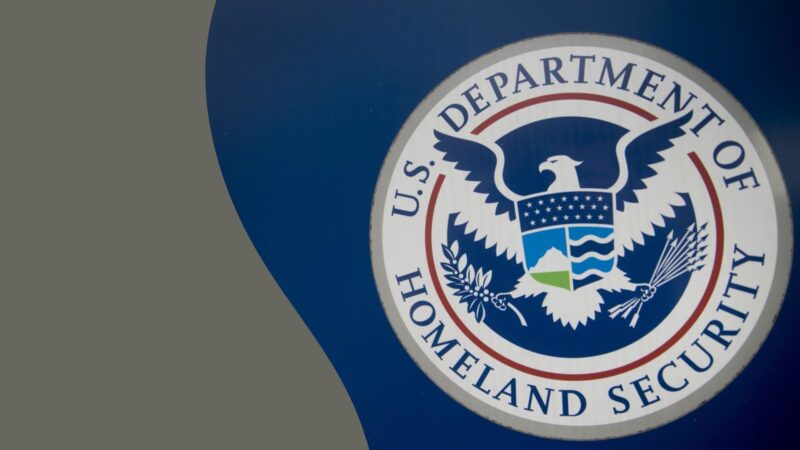Ever wondered what the acronym “DHS” means? This post will walk you through everything you need to know about the term and its significance. Buckle up for a deep dive into the U.S. Department of Homeland Security.
The Origin of the Acronym
“DHS” is an acronym that stands for the Department of Homeland Security, a critical federal agency in the United States. It came into being following the 9/11 terrorist attacks, which underscored the need for a coordinated response to domestic threats.
Its establishment marked a significant reorganization of federal agencies, the most extensive since the Defense Department’s creation in 1947. The aim was to merge numerous departments to improve their collective effectiveness and efficiency.
The Role of the Department of Homeland Security
The DHS was established to ensure the safety and security of the United States from various threats. It’s involved in many aspects of protection, from cybersecurity to border control, emergency response to immigration.
Its role is vast, encompassing both physical and virtual domains. From securing the nation’s borders and airports, safeguarding critical infrastructure, and coordinating disaster response efforts, the department plays a crucial part in the nation’s security architecture.
The Structure
The Department of Homeland Security is a vast and complex organization. To fully understand its scope and significance, it’s essential to dive into its structure.
Components

The DHS is comprised of numerous agencies and offices, each with a specific role. Some key components include:
- U.S. Customs and Border Protection (CBP): Responsible for protecting the borders of the U.S.
- Federal Emergency Management Agency (FEMA): Manages and coordinates the response to disasters that occur within the U.S.
- Transportation Security Administration (TSA): Ensures the security of the traveling public in the U.S.
- U.S. Citizenship and Immigration Services (USCIS): Manages the nation’s lawful immigration system.
This structure allows the department to handle a wide range of threats and issues, providing a comprehensive and coordinated approach to national security.
Leadership
At the helm of DHS is the Secretary of Homeland Security, nominated by the president and confirmed by the Senate. They oversee all components of the department, setting the strategy and ensuring coordination.
The Deputy Secretary supports the Secretary, and numerous Under Secretaries head various agencies within the department. This hierarchical structure facilitates the vast operations and responsibilities that the DHS carries out daily.
Key Responsibilities of DHS
The DHS has a wide array of responsibilities, which are essential to understand to fully grasp the scope of its work.
Counterterrorism
One of the primary responsibilities of the DHS is counterterrorism. The department works to detect and prevent terrorist attacks within the United States. This involves intelligence gathering, coordination with other agencies, and direct action when necessary.
The DHS also collaborates with international partners to address threats before they reach American soil. Its work in this area is critical to maintaining the safety and security of the U.S. population.
Disaster Response
Another key responsibility of the DHS is coordinating responses to disasters, both natural and man-made. This includes everything from hurricanes and wildfires to chemical spills and nuclear incidents.
Through FEMA, the agency manages disaster response coordination, provides aid to affected individuals and communities, and helps in the recovery process. The department’s work in this area is vital to mitigating the impact of these events and helping communities recover.
The Impact

Since its creation, the DHS has had a substantial impact on national security and disaster response. It’s become a cornerstone of U.S. security infrastructure, affecting the lives of citizens and non-citizens alike.
Impact on National Security
The DHS has undoubtedly had a significant impact on national security. It has helped to prevent numerous terrorist attacks, secured the country’s borders, and significantly enhanced cybersecurity. Its role in these areas has been transformative, with the department becoming a key player in ensuring national security.
However, the department’s methods and policies have sometimes been contentious, leading to debates about civil liberties and the appropriate balance between security and individual freedoms.
Impact on Disaster Management
In terms of disaster management, the DHS, through FEMA, has played a crucial role in responding to and recovering from disasters. The agency’s coordination of resources, support for affected individuals, and aid in rebuilding efforts have been invaluable in mitigating the impacts of numerous disasters.
However, the effectiveness of the agency’s response has varied. Some major events have exposed weaknesses in preparation, coordination, and recovery efforts, leading to calls for reform and improvement.
Department of Homeland Security and Immigration
In addition to its roles in counterterrorism and disaster response, DHS plays a significant role in managing and enforcing U.S. immigration laws. This is a responsibility of monumental proportions, given the country’s status as a leading destination for immigrants worldwide.
The Role in Immigration Policy
The DHS plays an essential role in administering and enforcing the country’s immigration laws. This involves overseeing lawful immigration to the U.S., protecting refugees, and providing humanitarian protection. The U.S. Citizenship and Immigration Services (USCIS), a component of the Department of Homeland Security, is in charge of these responsibilities.
Additionally, DHS is tasked with identifying and removing individuals who have entered the U.S. unlawfully. Enforcement of immigration laws is handled primarily by U.S. Immigration and Customs Enforcement (ICE) and U.S. Customs and Border Protection (CBP), both of which fall under the DHS umbrella.
The Impact on Immigration
The Department of Homeland Security has had a significant impact on immigration in the U.S. Through its various agencies; it has shaped the immigration process and enforced immigration laws.
Critics argue that the department’s approach has often been heavy-handed, leading to human rights violations and unnecessarily harsh treatment of immigrants. Supporters, however, contend that the DHS is simply enforcing the laws and protecting the nation’s borders.
The Future of the Department of Homeland Security

As we look to the future, it’s clear that the DHS will continue to play a crucial role in U.S. national security, disaster response, and immigration policy. However, the way it fulfills these roles may evolve as threats, technology, and societal attitudes change.
Adapting to New Threats
The nature of threats to national security is continually evolving, and the Department of Homeland Security must adapt to keep pace. This means staying ahead in areas like cybersecurity, where threats are growing and changing rapidly. It also involves adapting to new forms of terrorism and unconventional threats that may arise.
To remain effective, the Department of Homeland Security will need to continue investing in technology, intelligence capabilities, and personnel training. It will also need to foster strong relationships with international partners, as many threats to U.S. security originate abroad.
Balancing Security and Civil Liberties
A key challenge for the DHS in the future will be balancing the need for security with respect for civil liberties. This has been a point of contention since the department’s inception, and it’s likely to remain a significant issue in the future.
The department will need to continue refining its methods and policies to ensure that it protects the U.S. from threats without unnecessarily infringing on individual rights and freedoms. This will require ongoing dialogue, transparency, and checks and balances to ensure the appropriate equilibrium.
FAQs
What is the mission of DHS?
The mission of the Department of Homeland Security is to secure the nation from the many threats it faces. This includes everything from aviation and border security to emergency response and cybersecurity.
When was DHS established?
The Department of Homeland Security was established in 2002.
How many employees does DHS have?
DHS requires the hard work of more than 260,000 employees in a wide range of jobs.
What are some of the jobs within DHS?
Jobs within DHS range from aviation and border security to emergency response, from cybersecurity analyst to chemical facility inspector.
What federal departments and agencies were combined to form DHS?
DHS was formed by combining 22 different federal departments and agencies into a unified, integrated Cabinet agency.
What is the DHS seal?
The DHS seal was created in 2003 to symbolize the Department’s mission of preventing attacks and protecting Americans on land, sea, and air.
What is the Homeland Security Advisory System?
The Homeland Security Advisory System was a color-coded terrorism threat advisory scale. It has since been replaced by the National Terrorism Advisory System.
Who are the former Secretaries of the Department of Homeland Security?
The DHS website maintains a list of the former Secretaries of the Department of Homeland Security.
What is the Nebraska Avenue Complex (NAC)?
The Nebraska Avenue Complex (NAC) is the headquarters of the U.S. Department of Homeland Security. It has a rich history, having served as a girls’ seminary and a code-breaking facility during World War II.
Final Words
The Department of Homeland Security (DHS) is a critical part of the U.S. government, tasked with a vast range of responsibilities. From counterterrorism efforts to disaster management, it plays an integral role in keeping the nation safe and secure.
However, its functions and impacts are complex and often the subject of debate, reflecting the challenges of maintaining security in a diverse and dynamic society.
